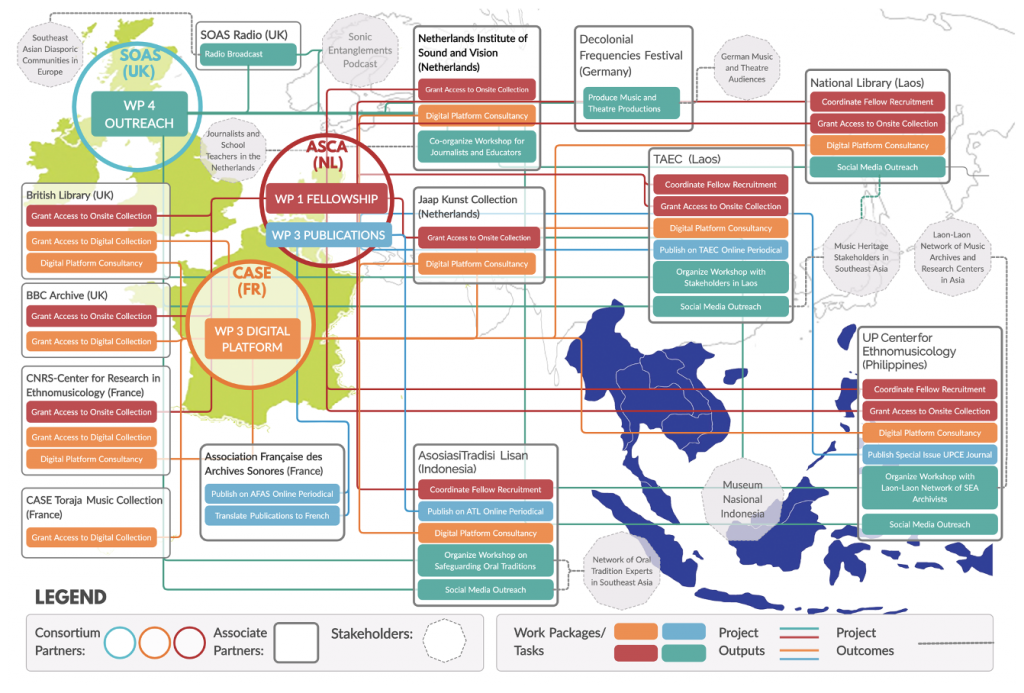
DeCoSEAS’ management structure is network-based. This implies that:
– The principal investigators occupy positions as nodes, facilitating the many flows, exchanges and crossings of sounds, ideas, peoples and objects that are realized in DeCoSEAS’ initiatives.
– The partners and stakeholders initiate the formulation of research questions and hitherto undiscussed issues, agendas, and positionalities.
This inversion of managerial roles is consciously aimed at decentralizing European agency in the exchange of ideas about (the curation of) Southeast Asian heritage. It also serves a shift towards less hierarchical modes of scholarly interaction that aids the free flow of ideas and stances. All partners are part of networks extending towards (Southeast Asian) research communities, institutional and embodied archives, non-academic experts, and artistic hubs that often remain unheard in predominantly Europe-based debates about heritage curation.
European traditions of academic research management carry a long history of controlling flows of knowledge and ideas, through the implementation of access hurdles to information, the streamlining of (forced) migrations of people, sounds, objects and ideas, and the denial of the complex entanglements of researcher and researched. These exertions of control become particularly evident in the exploitation of non-academic expertise and indigenous communities as sources of “free knowledge”. This ongoing practice has devastating consequences for non-academic experts and indigenous communities in the ownership of, and agency over their own intellectual, cultural and affective labour and creations.
Reversing established management structures comprises a form of inquiry of colonial power relations and histories in itself. Attention for the entanglements between partners, and for how they hear each other speak in the unfolding of the project can engender valuable data about how inequalities of power in the formation of knowledge come about. Such auto-observation over sustained periods of time substantiates DeCoSEAS’ status as a pilot study into the ways practices of heritage curation can be changed to include hitherto unacknowledged voices, stances and subject positions in the definition and acquisition of cultural heritage.